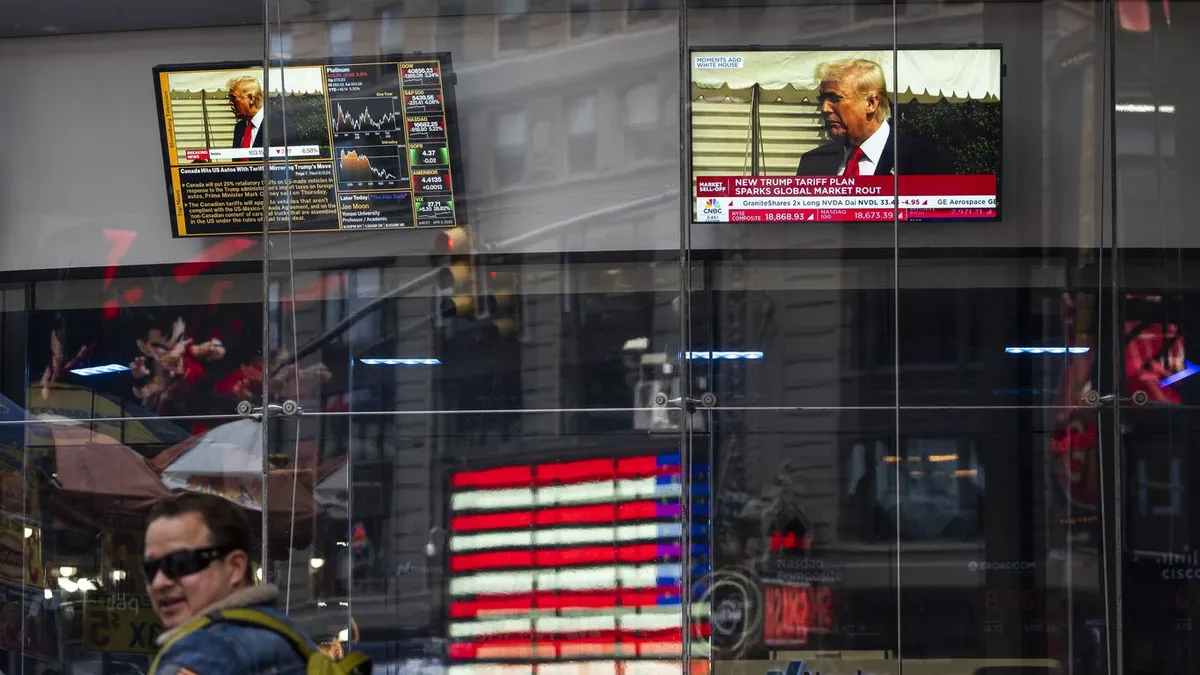
On Tuesday, former President Donald Trump issued a stark warning regarding the potential implications of the Supreme Court's upcoming decision on a series of tariffs. He claimed that if the Supreme Court were to strike down these tariffs, the United States could become virtually defenseless against other nations. This statement comes just one day before the highest court is set to hear oral arguments that challenge a critical aspect of Trump's economic agenda.
Trump's comments are particularly significant as they reflect his ongoing concerns about the economic ramifications of a potential loss in the Supreme Court. While officials from the Trump administration have attempted to downplay the consequences of a possible defeat, asserting that they could reimpose any overturned tariffs through other trade authorities, Trump has consistently warned that such a loss could be economically detrimental. It's worth noting that the U.S. has historically navigated economic challenges without imposing the highest tariffs seen in nearly a century.
In a post on Truth Social, Trump emphasized the gravity of the situation, declaring, "Tomorrow's United States Supreme Court case is, literally, LIFE OR DEATH for our Country." He expressed optimism about the potential for a favorable ruling, stating, "With a Victory, we have tremendous, but fair, Financial and National Security." He warned that without such a victory, the U.S. would remain vulnerable to countries that have taken advantage of its economic policies over the years.
Trump further highlighted the state of the stock market, noting that it is consistently achieving record highs, attributing this success to the economic security provided by tariffs and the strategic deals negotiated as a result. His assertion underscores the administration's belief in the importance of tariffs as a means to bolster national security and economic stability.
The Supreme Court is scheduled to hear arguments regarding whether Trump overstepped his authority in imposing a significant number of tariffs under the International Emergency Economic Powers Act. This includes global tariffs implemented on Liberation Day and tariffs on imports from nations such as China, Mexico, and Canada. The plaintiffs argue that the 50-year-old law does not extend tariff powers to the president, marking a critical point in this legal challenge.
On the other hand, lawyers from the Department of Justice contend that these tariffs provide Trump with the necessary leverage to address the trade deficit and other issues deemed emergencies by the White House. The legal arguments presented in this case could have far-reaching implications for presidential powers in trade matters.
As the Supreme Court prepares to deliberate on this case, it is uncertain when a ruling will be issued, with speculation that the decision could take several weeks or even extend into next year. The outcome of this case has the potential to either constrain Trump's powers regarding tariffs or pave the way for future presidents to utilize emergency powers to bypass Congress.
Treasury Secretary Scott Bessent is expected to attend the Supreme Court hearing, expressing his eagerness to witness the proceedings firsthand. In an interview with Fox News, he stated his hope to be "in the front row" to gain a "ringside seat" to this pivotal legal battle.
For more insights into Trump's economic policies, including recent changes to tariffs on China following promises from Xi Jinping regarding rare earths and soybeans, check out our in-depth analysis.